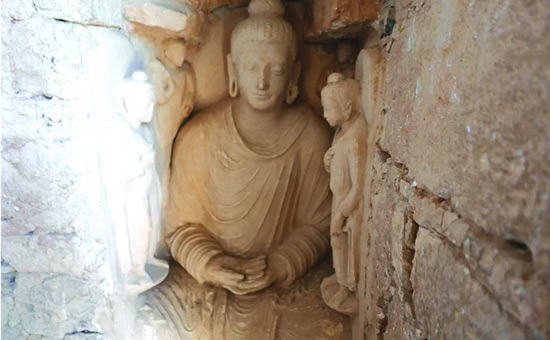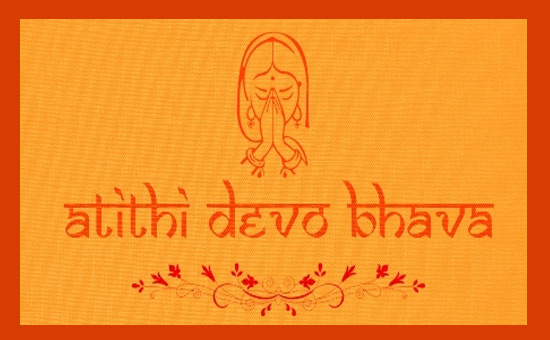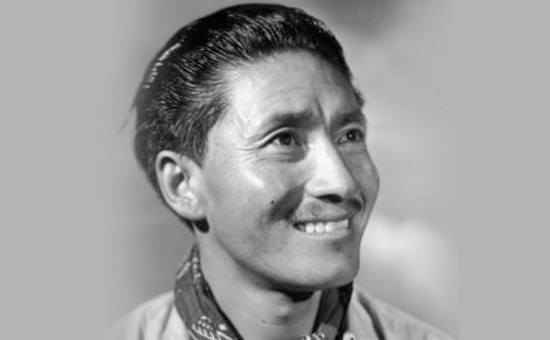-
This part tells you stories of Buddha
Purnima, Athithi Devo Bhava and Tenzing Norgay.
Part One
covered Guru, significance of Ganga Saptami and Sambaji Maharaj and son of
Shivaji. Part Two covered Mohini Avatar, Tiger stories Ayyappa and Mother’s Day. Part Three
tells you stories of Kamadhenu, Sita Navami and Narasimha Jayanti.
Why did I start writing these Stories? As a mother of three I have realized
that many children are deprived of hearing tales that are Indian in origin.
This could be for various reasons, an important one being that parents themselves
do not know these tales.
The desire to learn English and about
Western Nations meant that atleast two generations were fed tales from the West
namely Sleeping Beauty, Cinderella, etc. Because of this when you ask a child
to write an essay of their favourite character they will write about Santa
Claus and Snow White but not Shivaji.
So I took it upon myself to write short stories about India’s cultural heritage. The stories have been written in such a way that they can be read to children. At the same time I added snippets of our culture, rituals, shlokas, food, etc. so that children get to know about them. Must add that these stories are not meant to be scholarly pieces of work.
 Buddha
Buddha
BUDDHA PURNIMA
Today is the day when Gautam Buddha was born, attained enlightenment and shed
his mortal coils. He was a person who was always peaceful and never got angry
on anyone. People wondered onder how he kept his cool. Since his teachings were
different from the belief of the people those days, it is obvious that many
people disliked his teachings. Also, since he made many young people accept
monkhood ie to live like a Bhikshook,
many parents too were upset with him.
Once, an old man came to his gathering (Satsang or sermons) and started
shouting at him in front of everyone. He spoke many bad words and screamed at
him in anger. But Buddha sat with a smile on his face, absolutely peaceful.
People were surprised. They wanted to beat up the old man or atleast shoo him
away, but Buddha did not allow them to do anything. He kept listening to the
old man with lots of love and peace.
After a few minutes the old man stopped his rants and walked out of the gathering and sat under a tree close by. The others in the Satsang asked Buddha how he managed to keep his cool. Buddha answered, “Simple. Imagine you send a parcel to someone staying far away. When the parcel reaches him, what happens if he doesn’t accept it?” The people replied, “It comes back to the sender, to us.” Buddha then smiled and said, “Exactly. I stay far away from the old man’s anger. He sent me a parcel of abuses. I did not accept it.”
The old man was listening to all this.
Tears flowed out of his eyes. He understood that
whatever is sent to the Universe comes back to us only. He went and fell
at the feet of the Buddha. Buddha smiled and blessed him.
 Athithi Devo Bhava
Athithi Devo Bhava
ATHITHI DEVO BHAVA
In our country, every guest is welcomed
with open arms, lots of love and laughter. Even in cities one can see houses
with their doors open, neighbours entering houses with the familiarity of a
member of the house. In villages seldom are doors closed.
When guests arrive, they just call out to the owner or the Mother of the house as “Kaku/Kaki/Athe” (Aunty) and they are immediately welcomed inside. Usually a glass of water is offered first and then tea and snacks or meals after a few minutes. It would be a rare occasion if the guest left without even having water.
Once, a king wanted to choose an able,
honest and kind man as his representative in some of the villages. Many people
applied for the job and finally two people were narrowed down for the job. The
king had to select one of them for the post. Both were able and had a good
reputation. It was a difficult choice. Finally, the king had an idea. One day
he and his minister went to the village of one of the candidates, in disguise.
Those days kings would roam around their lands in disguise to know how the land
and the people were faring.
They reached the doorsteps of the first candidate Arun. The king stood at a distance and the minister went ahead and called out to Arun. Arun came out and the minister told him, “We are strangers from a far away land and wanted to stay overnight in your village and if possible, in your house. Can you please help us?” Arun asked, “How many of you are there?” The minister replied, “Two”; Arun immediately called them inside, treated them with a good meal and made arrangements for their stay. The next morning the king and his minister departed and went to the other village where the second candidate lived.
They reached the house of Ajay, the second candidate, in a very tired state. They were very hungry too. Ajay came to the door and called them inside immediately. He offered them water and then asked them if there were more people in their group outside waiting to be called inside. “No, we are just the two of us” the minister replied. Ajay made arrangements for their stay and treated them to the same meal as he was eating. The next day the king and his minister departed for their capital.
The next day the king made a decision to employ Ajay for the job and he asked the minister to make arrangements for his appointment. The minister was surprised. He asked, “Both Ajay and Arun looked after us well … in fact Arun fed us a more sumptuous meal. Then why did you choose Ajay?” The king replied, “When we went to their house, Arun first asked us how many of us were there. Then he accommodated us. Then, after judging our status, he fed us well. But Ajay, first called us inside and then enquired if more of us were waiting outside. He was willing to accommodate any number of people and treated us as he would have treated any family member. This is what I wanted in my representative.”
In Bharat we say, “Athithi Devo Bhava” meaning every guest is a God. They who get guests at home are blessed. It would be a sad life if we never had anyone coming to our house and spending their valuable time with us.
 Tenzing Norgay
Tenzing Norgay
TENZING NORGAY
Tenzing Norgay of Bharat and Edmund Hillary of New Zealand were the first people to scale the Mount Everest. When Tenzing Norgay reached the peak of Mt. Everest, he had the presence of mind to hold high the flags he had attached to his ice-pick, when his picture was being taken. There were four flags on his ice-pick – the flag of the UN, United Kingdom (because the expedition was sponsored by a British National), Nepal and Bharat. So much presence of mind and gratitude for the World, the sponsor, his Nation of origin and the Country which he was a National of. He also kept a little offering of food for God as per Buddhist tradition. Then he ate his share of Mint Cake.
Success did not come easily to Tenzing
Norgay. He was born Namgyal Wangdi to a Sherpa family. Tenzing went to Nepal as
a child to work for a Sherpa family in Khumbu. His father was a yak herder.
Tenzing Norgay received his first opportunity to join an Everest expedition in
1935. He was just a 20-year-old and his chance came because two of the other
Sherpas failed their medical tests. He made 3 attempts for 12 years, but could
not reach the top.
In 1947, Norgay participated in an
unsuccessful summit attempt of Everest. Canadian-born Earl Denman, Ange Dawa
Sherpa, and Norgay entered Tibet illegally to attempt the mountain; the attempt
ended when a strong storm at 22,000 feet (6,700 m) pounded them. That year
Norgay became a sirdar (guide) of a Swiss expedition for the first time. He was
given this position because he rescued Sirdar Wangdi Norbu who had fallen and
been seriously injured. In 1952, he took part in the two Swiss expeditions led
by Edouard Wyss-Dunant (spring) and Gabriel Chevalley (autumn), the first
serious attempts to climb Everest from the southern (Nepalese) side. Raymond
Lambert and Tenzing Norgay were able to reach a height of about 8,595 metres
(28,199 ft) on the southeast ridge, setting a new climbing altitude
record.
Norgay was for the first time in 1952,
considered a full expedition member ("the greatest honour that had ever
been paid me"). In 1953, Tenzing Norgay took part in John Hunt's 7th
expedition to Everest. In this expedition, Edmund Hillary had a near-miss death
because he fell into a crevasse (a deep open crack in a glacier). He was saved
from hitting the bottom by Norgay's prompt action in securing the rope using his
ice axe. Because of this Hillary considered him the climbing partner of choice
for any future summit attempt. The team started the climb to the top of Mt.
Everest. On 26 May, two team members, Tom Bourdillon and Charles Evans
attempted the climb, but turned back when Evans' oxygen system failed. Hunt
then directed Norgay and Hillary to go for the summit. AND THEY REACHED IT.
They spent only about 15 minutes at the summit. On 29th May, 1953 Tenzing
Norgay and Edmund Hillary reached the peak of Mt. Everest for the 1st time at
11.30 am.
Tenzing Norgay became the first Director of Field Training of the Himalayan Mountaineering Institute in Darjeeling, when it was set up in 1954. He got many awards like the Order of the Star of Nepal, the Padma Bhushan in Bharat and the George Medal in England. His is a story of courage, ‘never give up’ spirit and the noble character of helping people in the worst of situations.
“It has been a long road ... From a mountain coolie, a bearer of loads, to a wearer of a coat with rows of medals who is carried about in planes and worries about income tax.” - Tenzing Norgay
Author is a mother to three children and writes on Spirituality, Women
Empowerment and National Affairs. Her articles are published on
Indusscrolls.com amongst others. She believes in the cause of the Indian Breed
of Cows and is a follower of Shree Ramachandrapura Matha, Karnataka.